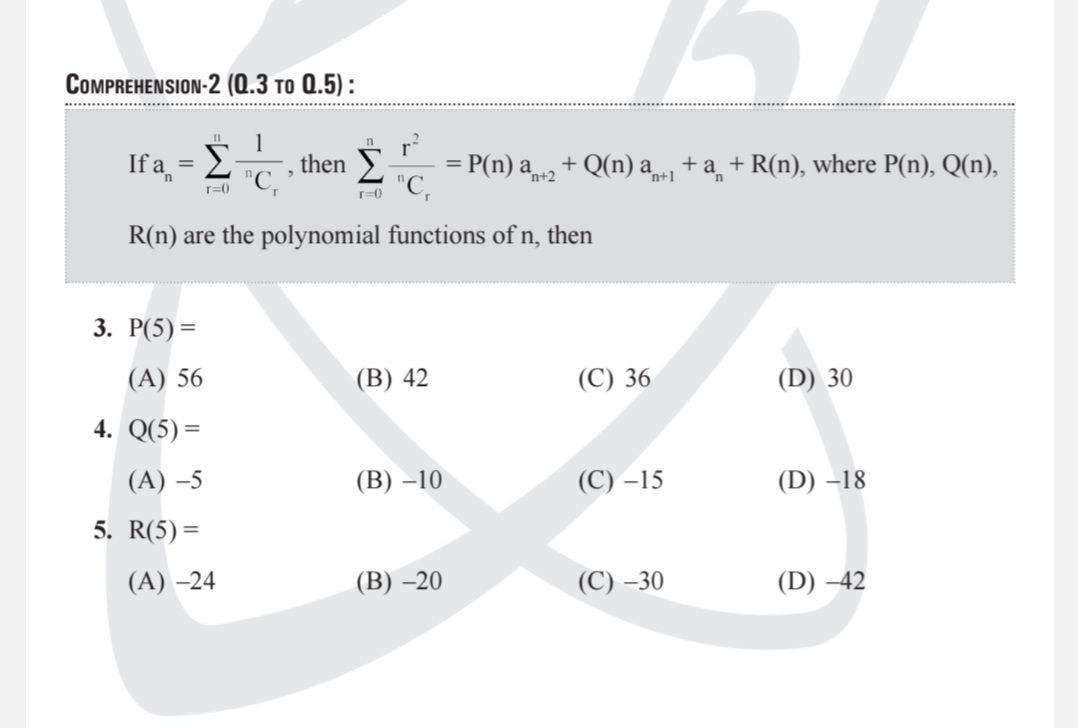Question
Question: If $a_n = \sum_{r=0}^{n} \frac{1}{^{n}C_r}$, then $\sum_{r=0}^{n} \frac{r^2}{^{n}C_r} = P(n) a_{n+2}...
If an=∑r=0nnCr1, then ∑r=0nnCrr2=P(n)an+2+Q(n)an+1+an+R(n), where P(n), Q(n), R(n) are the polynomial functions of n, then

A
56
B
42
C
36
D
30
Answer
P(5) = The provided answer options are not correct. The correct answer cannot be determined with the given information.
Explanation
Solution
The question provides an equation and asks to determine P(5), Q(5) and R(5). ∑r=0nnCrr2=P(n)an+2+Q(n)an+1+an+R(n)
Where an=∑r=0nnCr1
To find P(5), we need to find the polynomial P(n) and evaluate it at n=5. However, after exporing possible identities, it's not possible to determine the answer using the given information.
